Development Alternatives Group @ 40

In the early 1980s, at around 35 years of age, the nation’s midlife crisis manifested itself in numerous life-threatening ways—two-thirds of its citizens living in extreme poverty; its vast wealth of forests, soils, water and other resources depleting rapidly; its growing global environmental responsibilities such as minimising stratospheric ozone depletion, biodiversity loss, climate change and its somewhat underwhelming economic prospects were of deep concern. And it was becoming clear to some of us that the current institutional and policy frameworks were not in a position to carve out a better future for the country.
None of the main sectors of the economy, government, business or civil society often referred to as sarkar, bazaar or samaj seemed to be structured to deliver, individually, the short-term needs and long-term requirements of people and nature with meaningful speed and at scale. The mechanisms of over-staffed government at the central and state levels were more preoccupied with the inherent tendencies of large organisations to give higher priority to their own survival and growth than to solve the multiple problems they were ostensibly setup to solve. Big businesses’ mandate and focus was earning the biggest possible profits, if necessary, at the expense of public welfare and well-being. And civil society, despite its best intentions, did not have the resources or capacity to act at the scale needed. Moreover, none of the three seemed to be able to work together to address the issues of equity and environment adequately.
Around this time, in 1982, a small group of concerned individuals with long experience in academia, government, business, international civil service and not-for-profit organisations came together. It put together a new kind of institution, the first ‘social enterprise’ that sought to combine the strengths of sarkar, bazar and samaj to deliver the combination of social and economic benefits needed for a truly vibrant national future. This organisation called Development Alternatives aimed at bringing technology and business innovation to bear on the problems faced by the poor and by nature in our country.
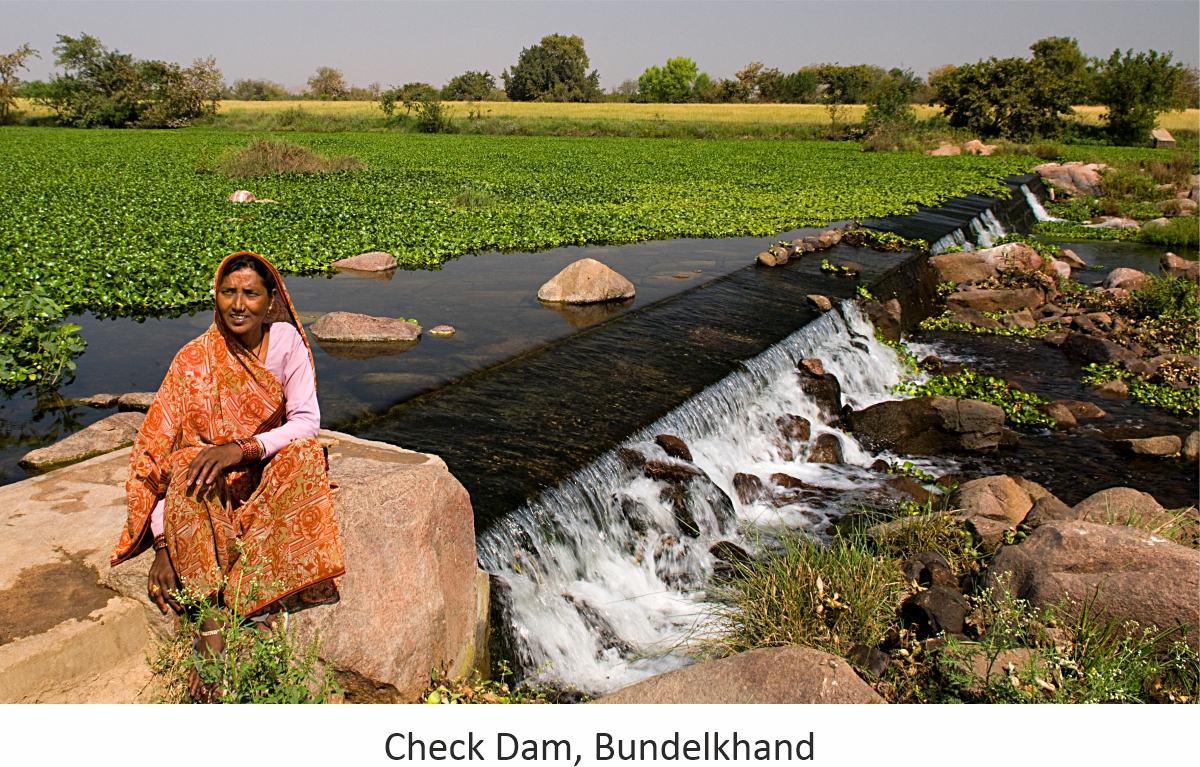 Over these 40 years, Development Alternatives has developed several innovative and environment-friendly technologies for rural communities, such as clean water, shelter and cooking energy; sustainable solutions for land and water management agriculture and renewable energy for small businesses; a wide variety of local livelihoods, particularly through setting up of small, local and green enterprises. The solutions address the problems of poverty and environmental degradation, and pave the way for sustainable development of the nation.
Over these 40 years, Development Alternatives has developed several innovative and environment-friendly technologies for rural communities, such as clean water, shelter and cooking energy; sustainable solutions for land and water management agriculture and renewable energy for small businesses; a wide variety of local livelihoods, particularly through setting up of small, local and green enterprises. The solutions address the problems of poverty and environmental degradation, and pave the way for sustainable development of the nation.
An equally important purpose for setting up Development Alternatives was to act as a forum for young, creative professionals to generate solutions that would cater to at least the basic needs of all people, respect the limits of the environment and build the basis of a more secure future, which are the main ingredients of sustainable development. One of its primary goals was, thus, to create a cadre of thoughtful, active leaders capable of reorienting and creating the development pathways needed for a better future. Our achievements towards this goal are worth being proud of as several thousand practitioners working in the organisation and alumni elsewhere contribute excellent results for sustainability goals.
Hence, Technology and Action for Rural Advancement (TARA), an enterprise of Development Alternatives, and People First, a Development Alternatives advocacy organisation, were set up on the same day as Development Alternatives. While Development Alternatives works in the laboratory devising solutions to the problems of people and nature, TARA performs in the field by multiplying these solutions.
Development Alternatives came up with effective solutions through research and development and handed these to TARA, which sold these products and technologies through subsidiary companies to generate revenues for the group as a whole. Having pioneered the ‘Social Enterprise,’ it was some 15 years before other such institutions came
into being.
Development Alternatives is known for doing things differently from other civil society organisations. Early on, it recognised that technology and marketing systems could be designed in a way to make them applicable to rural India and environmental issues. By the time we had been around for 10 years or so, we had more innovations in the field for the rural market than the entire government had.
Development Alternatives is also among the pioneers to introduce solid management systems in civil society organisations. We focused on building strong capacity throughout the organisation and setting up strategic business units responsible for their income and expenditure. A sense of ownership was instilled in every member of the organisation.
The organisation’s approach to fulfilling the basic needs of the poor through innovation is distinct from that of other research and development institutions in India because it brings innovators, experts in production and cutting-edge marketing specialists under one roof. It has pioneered its role as a network enabler, creating or bringing together organisations with complementary strengths—a model that can be implemented on a large scale.
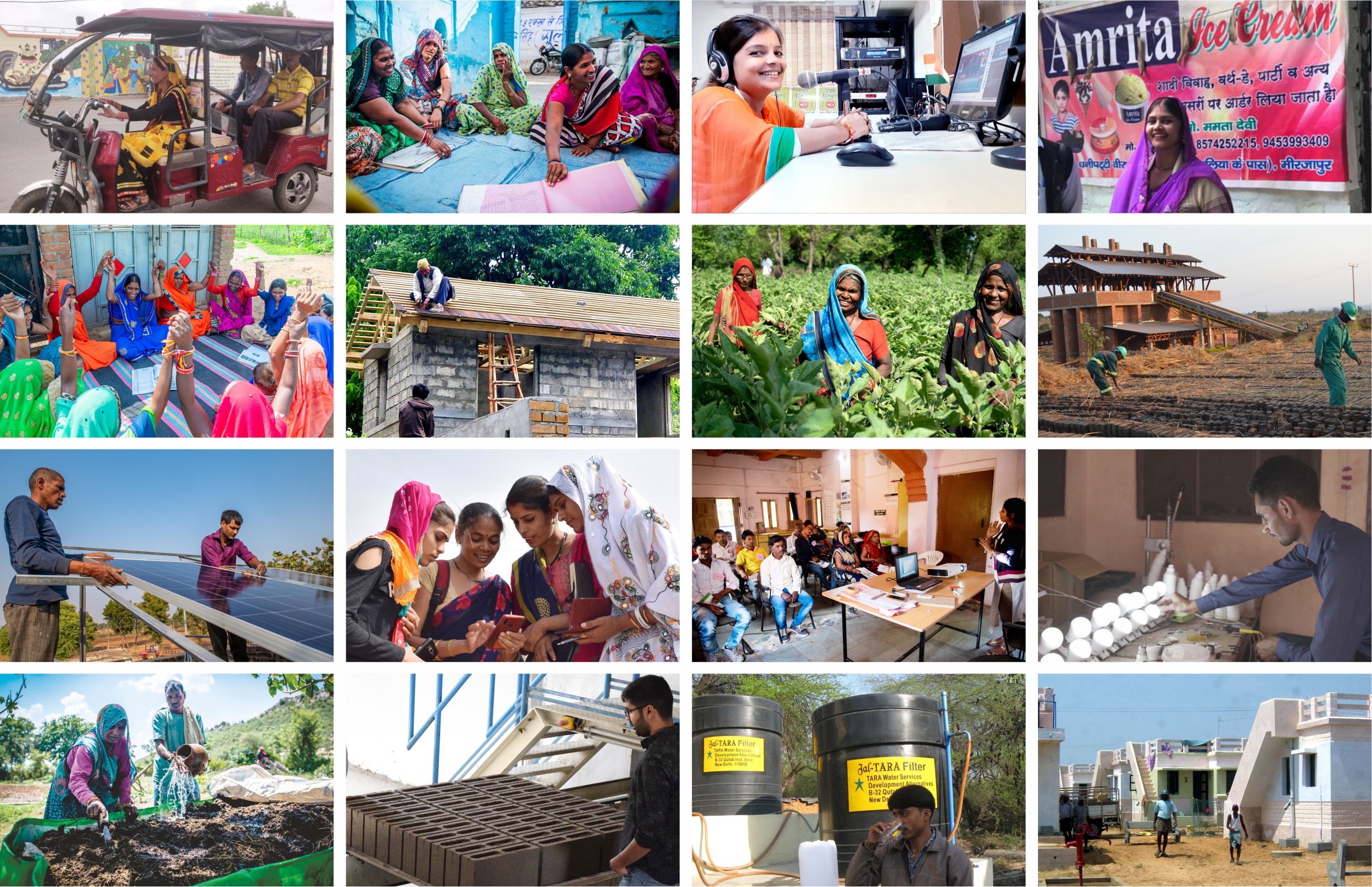
Development Alternatives today has a national footprint essentially through partnerships and alliances that are very carefully established and nurtured. While partnerships with civil society organisations provide extensive reach to the poor, business networks facilitate social entrepreneurship. Policy alliances have enabled the concepts, methods, tools and techniques to reach a wider audience nationally and globally.
Over the years, Development Alternatives technologies and solutions have enabled the creation of over a million rural livelihoods through the enterprises that use its eco-technologies in shelter, water and energy making possible the creation of many additional livelihoods downstream.
We have empowered over 20 million lives by enabling the formation of 5700 self-help groups and 13,450 community-based organisations through its Poorest Area Civil Society (PACS) network of 665 civil society partner organisations. The number of persons we have reached out to with practical solutions, information, education and creation of awareness is well over 6 million.
Development Alternatives has spearheaded nearly 48,000 environment conservation initiatives through a network of 1.25 million school children and their communities. For natural resource management, it has built more than 294 check dams resulting in the regeneration of over 10,000 hectares of land, benefiting about a quarter million people.
Through our highly innovative learning programme, TARA Akshar, Development Alternatives has taught nearly 250,000 women to read, write and do simple arithmetic.
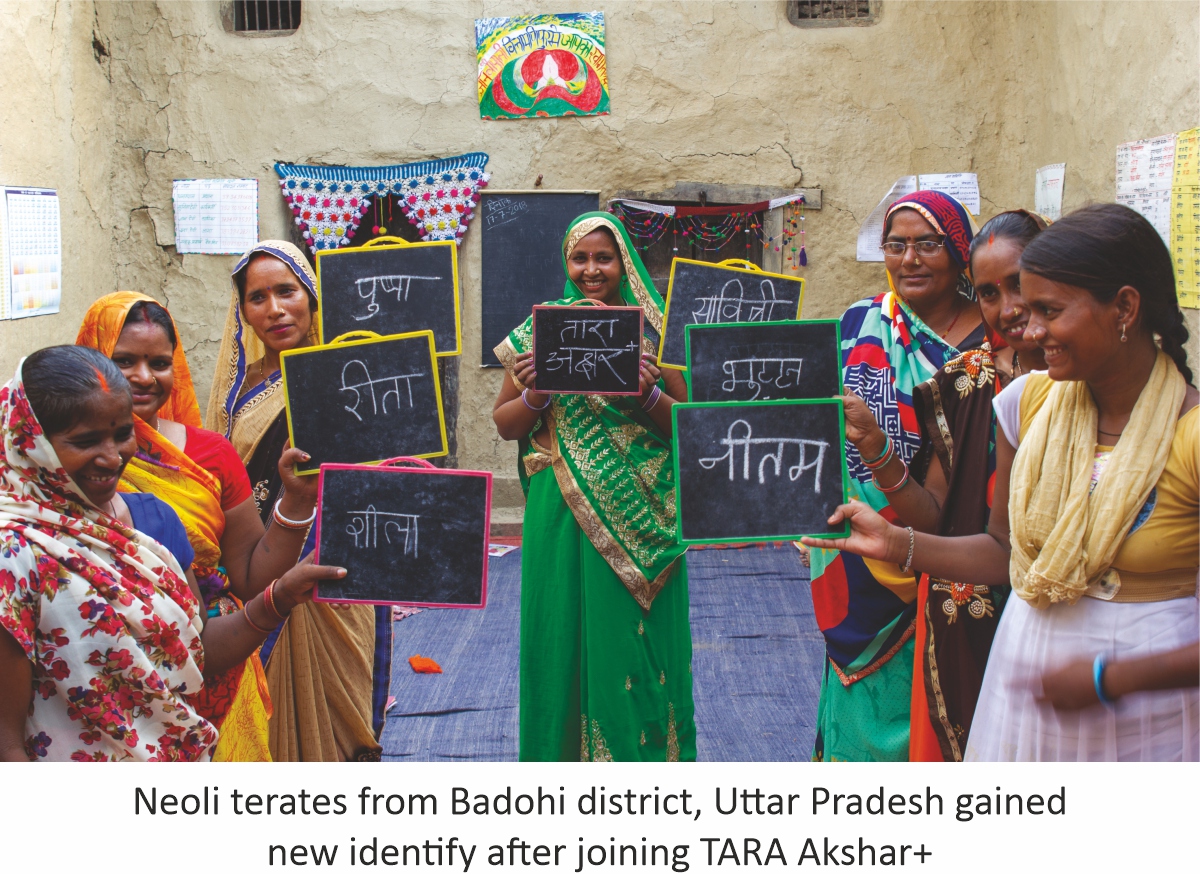 These and other achievements have been recognised by several global awards, including the Schwab Foundation’s Outstanding Social Entrepreneurship Award (2004), the United Nations Sasawaka Environment Prize (2002), the Sheikh Zayed International Environment Prize and numerous national awards, including the Nehru Prize of the Indian Science Congress.
These and other achievements have been recognised by several global awards, including the Schwab Foundation’s Outstanding Social Entrepreneurship Award (2004), the United Nations Sasawaka Environment Prize (2002), the Sheikh Zayed International Environment Prize and numerous national awards, including the Nehru Prize of the Indian Science Congress.
Today Development Alternatives has established a reputation worldwide for its capacity to create the means to generate sustainable livelihoods in large numbers, which is the key to addressing development issues. Still, we have a long way to go before we can fulfil our vision of creating a country where everyone has the opportunity of living a fulfilling life. The road ahead for the nation includes eliminating poverty and hunger, bringing back the resource base and the environment to full health and creating an ambiance where people of all castes, religions, groups and regions feel it is their country and they have equal rights over it. We hope to contribute what we can do to construct that road.



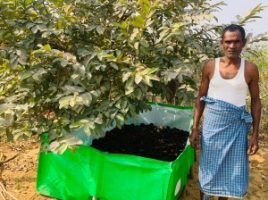
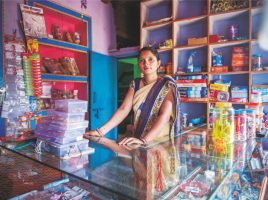
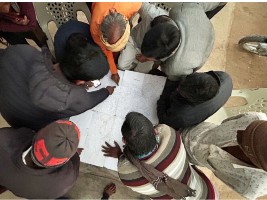

Leave a Reply